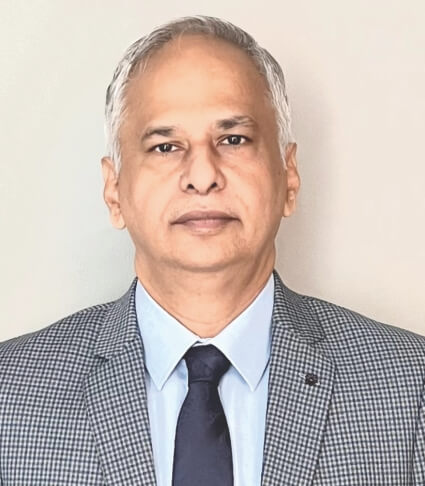Haber provides automated, AI-driven solutions to generate accurate, real-time insights and help industries manage their process more efficiently.

In an interview with Paper Mart, Mr. Ram Santhanam, Director-Engineering at Haber throws light on the importance of water treatment in the paper industry and how Haber, through its innovative approach and AI-driven automation services, is transforming this space. Chemical applications through AI-based control have enabled paper mills to generate accurate and real-time insights which pave way for efficient process management.
“Measurement is the first step to control. Measure-Analyze-Automate is the next evolvement in Industry 4.0, and these are even becoming the norm in compliance management today, where key water parameters are being asked to be transmitted to the central grid in real-time.“
Paper Mart: Given the current situation can you elaborate on how critical water treatment is to the paper industry?
Ram Santhanam: Next to raw material costs, water management is becoming the primary talking point in the paper industry. Changing climatic conditions significantly impact mills that use surface water, and those using groundwater are facing increasing draw restrictions or quality issues. Discharge norms are getting tighter by the day and those who are not prepared to handle water recycling issues face product quality issues as well.
Newer markets and product developments and their chemistries impact how water is further treated. For example, with the increasing pressure on banning plastics, the world is looking up to the paper industry to provide food-grade replacements which will bring in demands both from product quality that are safe and internal water treatment perspectives.
Many mill expansion plans are on hold mainly due to limitations on water allocations or discharge restrictions even though the paper market is witnessing robust growth.
PM: What do you think are the limitations or challenges in the current system followed in the industry?
RS: As we see it, the knowledge gap is one of the primary impediments today. Traditional water treatment methods or knowledge is not adapted innovatively to meet paper Industry challenges, where both the volumes treated and quality aspects are significant, leading to high treatment cost projections and aborted project plans.
Secondly, taking a panoramic view of the situation is important, where mills must make a medium-term vision of zero liquid discharge. The key lies in making a roadmap and then taking small and assured steps in the right direction. Transitioning from certain low-hanging fruits to complex ones in a sequence helps matters. Changing water treatment plans with changing administrative scenarios or laws can make the mill go in circles.
With extensive knowledge in water, utilities and paper process systems, Haber can help in conducting a Mill-wide Water Audit [MWA] and create a roadmap and detailed plans.
Watch: IVAX Paper Chemicals Interview
PM: How do you think the adoption of world-class automation solutions can help the industry?
RS: Measurement is the first step to control. Measure-Analyze-Automate is the next evolvement in Industry 4.0, and these are even becoming the norm in compliance management today, where key water parameters are being asked to be transmitted to the central grid in real time.
Automation would be the biggest leveler in an industry where variations are the norm in the process – grade changes, breakdowns, boil-out happen all the time and it would be naïve to think these could be handled manually and still keep a firm grip on your water handling. Plain automation alone would only dump more data and may not translate to benefits unless combined with strong process expertise.
Haber offers this combined water and paper process knowledge packaged into their adaptive automation. I call this adaptive automation, as this overcomes hardware-intensive linear automation that would periodically add costs to obsolescence. Haber also specialises in shifting the automation costs to a production-driven revenue model instead of CapEx, where mills continuously evaluate us on a Pay-upon-Performance model.
Also Read: Haber: AI will Transform the Paper Industry
PM: Is automation the way ahead to accelerate the growth of the industry globally?
RS: Industries worldwide have committed to the Industry 4.0 transition, and this would be the beginning of a new data-centric Industrial revolution. I would not be surprised if it becomes a norm in the future to identify yourself as a practitioner of this model, similar to what we do with ISO certifications in manufacturing.
As with water management, it would need differentiated technologies to break new ground and Haber is at the forefront in bringing the ever-evolving expanse of AI applications to process industry automation.



